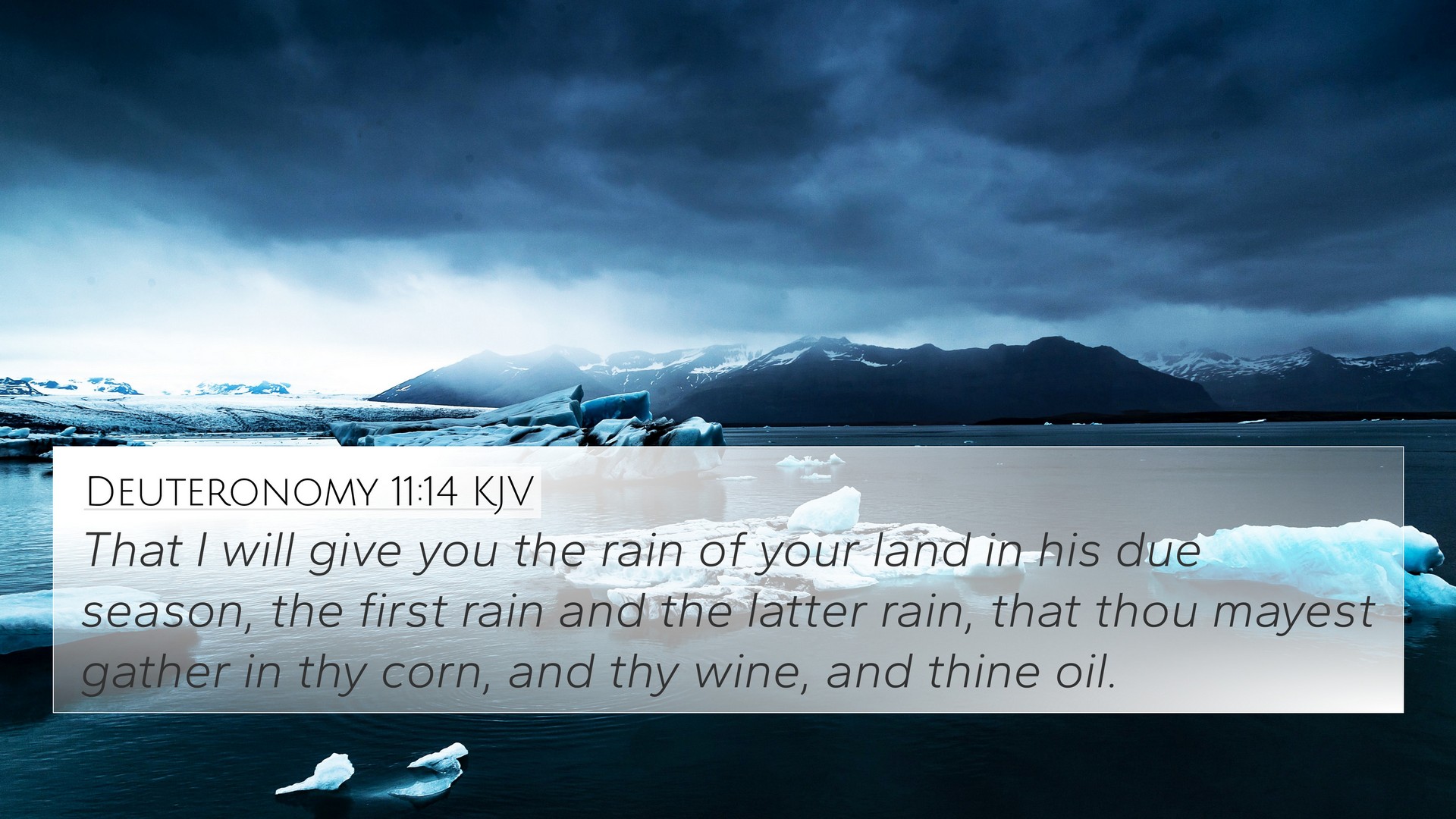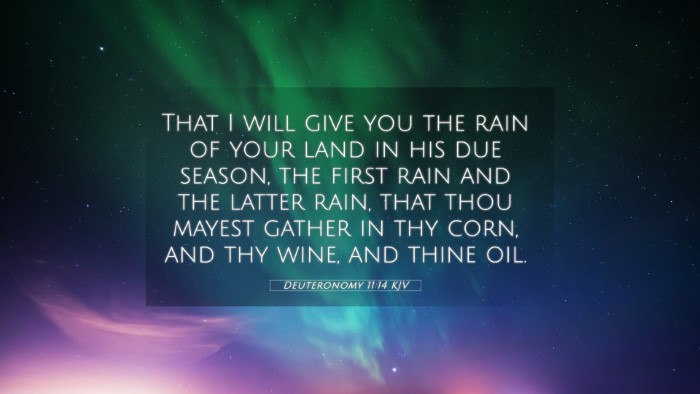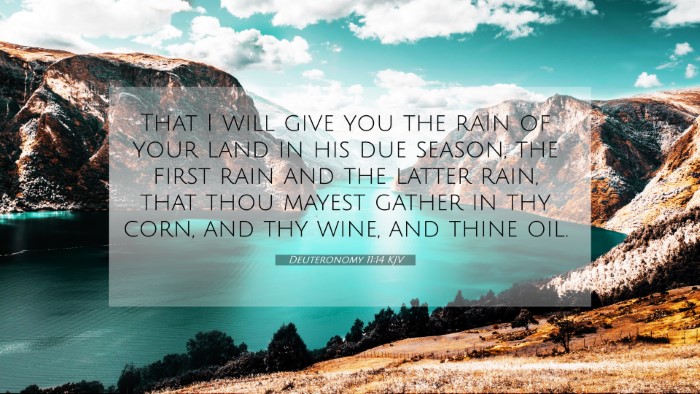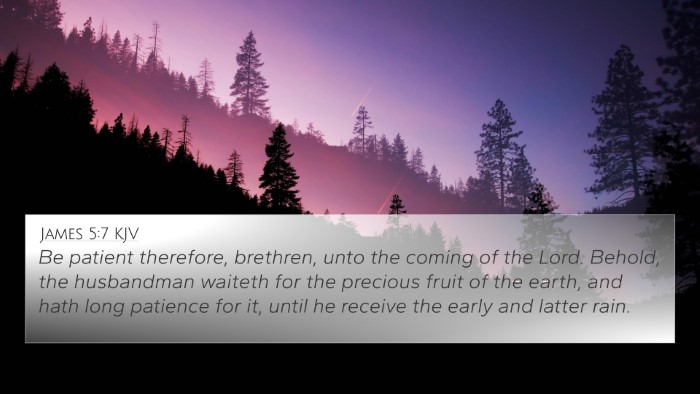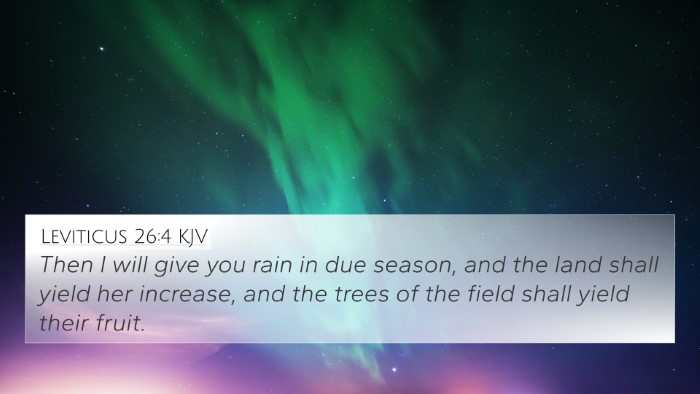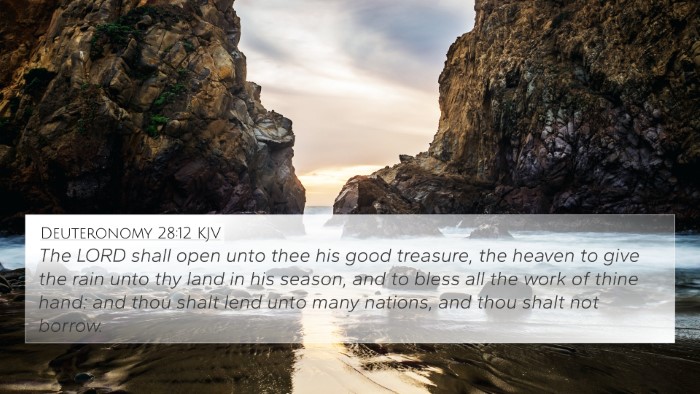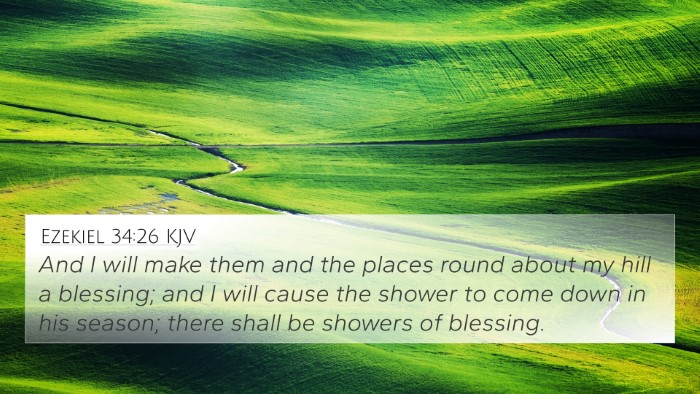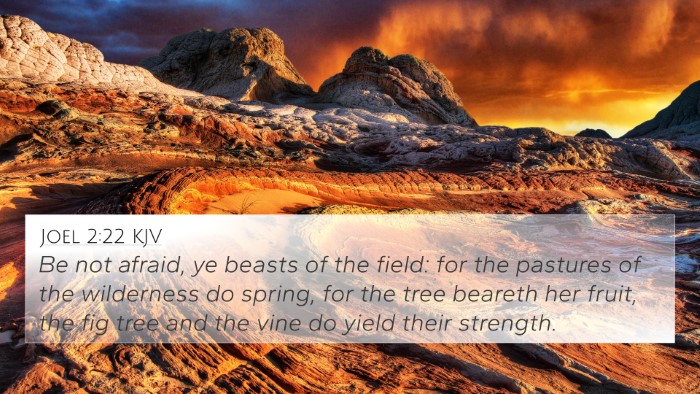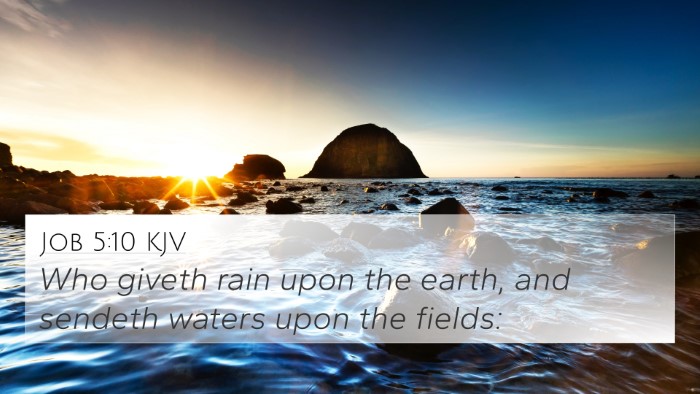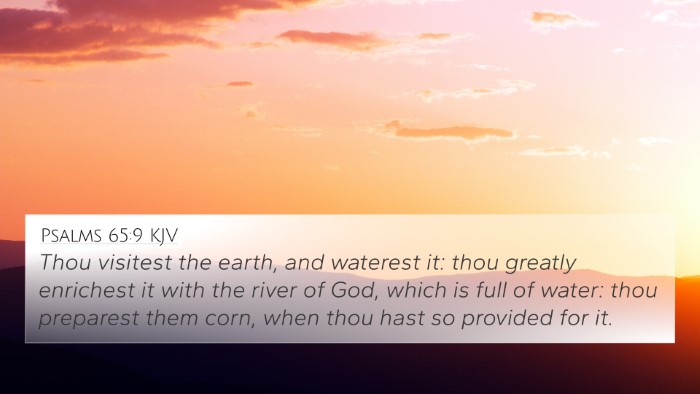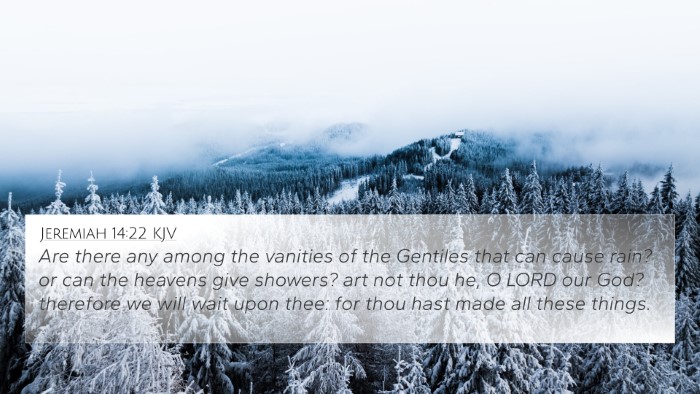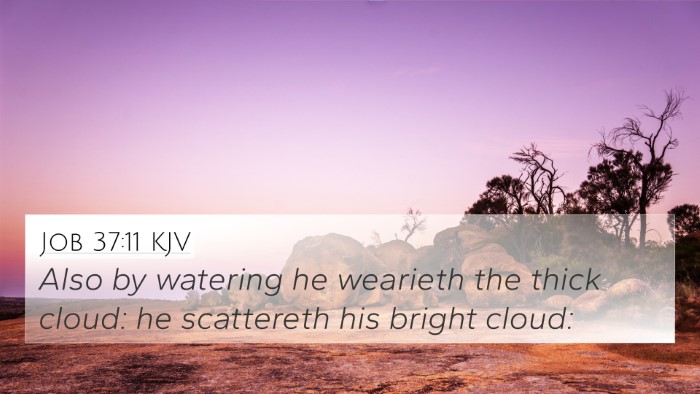Understanding Deuteronomy 11:14
Bible Verse: Deuteronomy 11:14 (KJV) - "That I will give you the rain of your land in his due season, the first rain and the latter rain, that thou mayest gather in thy corn, and thy wine, and thine oil."
This verse encapsulates a promise from God regarding the blessings of the earth, particularly the vital rains necessary for agricultural prosperity. It signifies God’s faithfulness to the people of Israel in their covenant relationship.
Significance of the Verse
In Deuteronomy 11:14, we find a profound assurance that God will provide the necessary seasonal rains for the agricultural success of His people. The "first rain" (or autumn rain) and the "latter rain" (or spring rain) are critical for the timely growth of crops and gathering of harvests.
Commentary Insights
-
Matthew Henry:
Henry emphasizes the agricultural implications of this promise, acknowledging that the prior mention of obedience in the preceding verses ties closely with God’s blessings. His commentary suggests that the blessings of rain are contingent on Israel's faithfulness.
-
Albert Barnes:
Barnes interprets this verse within the broader theme of divine provision. He notes that the mention of both rains signifies a full cycle of agricultural needs being met, illustrating God’s comprehensive care for His people.
-
Adam Clarke:
Clarke points out the significance of timely rains in the Near Eastern agricultural context and suggests that these rains are symbolic of spiritual refreshment from God, connecting physical sustenance and spiritual abundance.
Connections to Other Scriptures
This verse can be cross-referenced with several other Biblical texts that share similar themes of provision and divine faithfulness:
- Leviticus 26:4: "Then I will give you rain in due season, and the land shall yield her increase..." - A direct parallel highlighting the promise of God's provision through rain for faithful adherence to His commandments.
- James 5:7: "Be patient therefore, brethren, unto the coming of the Lord. Behold, the husbandman waiteth for the precious fruit of the earth..." - This New Testament verse connects the agricultural imagery with the patience required in waiting for God’s promises.
- Joel 2:23: "Be glad, O children of Zion, and rejoice in the Lord your God; for he hath given you the former rain moderately, and he will cause to come down for you the rain, the former rain, and the latter rain in the first month." - This emphasizes both the former and latter rains reflecting God’s faithfulness to His people.
- Psalm 65:9-10: "Thou visitest the earth, and waterest it: thou greatly enrichest it with the river of God, which is full of water..." - A poetic illustration of God’s provision of rain and subsequent blessing on the earth.
- Proverbs 16:15: "In the light of the king's countenance is life; and his favour is as a cloud of the latter rain." - This speaks to the favor of God, drawing a connection to the life-giving rains.
- Hosea 6:3: "Then shall we know, if we follow on to know the Lord: his going forth is prepared as the morning; and he shall come unto us as the rain, as the latter and former rain unto the earth." - A depiction of God’s return being akin to life-giving rains.
- Deuteronomy 28:12: "The Lord shall open unto thee his good treasure, the heaven to give the rain unto thy land in his season..." - Emphasizes the conditional nature of blessings upon obedience, reinforcing themes from Deuteronomy 11:14.
Thematic Connections and Reflections
Thematically, Deuteronomy 11:14 speaks to the broader Biblical narrative concerning God’s provision and covenant faithfulness:
-
Covenant Relationship:
This verse underlines the conditions of the covenant God made with Israel. The blessings are dependent upon their obedience, establishing a reciprocal relationship between God and His people.
-
Symbolism of Rain:
Rain often symbolizes God's blessings and His Spirit. Just as rain revitalizes the earth, God’s grace revitalizes the soul, bridging the physical and spiritual realms.
-
Nature of Divine Provision:
God’s promise emphasizes the assurance of His providence. Believers are reminded that God is aware of their needs and will provide at the appropriate time.
Conclusion
Deuteronomy 11:14 serves as a reminder of the faithfulness of God in providing for His creation. The promise of rain represents both the physical sustenance necessary for survival and the spiritual nourishment provided through a relationship with God. Understanding this verse within its broader context allows for deeper insights into God’s character, His covenant with Israel, and His ongoing commitment to meet the needs of His people.
For those delving into Bible verse cross-references, the connections highlighted here can foster a richer understanding of the Scriptures, enhancing the study of Bible verses that relate to each other. Whether using a Bible cross-reference guide or tools for systematic study, these insights encourage believers to engage in cross-referencing Bible study methods to uncover layered meanings throughout God’s Word.
